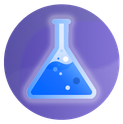Community resources
Community resources
- Community
- Q&A
- Confluence
- Articles
- Step 3: Make a Collaboratory Prediction
Step 3: Make a Collaboratory Prediction
Hello Collaboratory Scientists!
Welcome back to Collaboratory Month 🧬
The third step in the Collaboratory method is to make a Collaboratory prediction based on your question and hypothesis. (If you haven't already, formulate a question on the Step 1 post, and form a hypothesis on the Step 2 post).
In science, a prediction is what you expect to happen if your hypothesis is true. So, based on the Collaboratory hypothesis you've already created, you can predict the outcome of your experiment. Here's a page that explains the difference between a hypothesis and a prediction - they're very similar!
Example: Perhaps, you want to test an experiment about whether having more meetings results in more efficient collaboration.
A good question to begin with might be: ”Does having more meetings result in a project being finished more quickly?"
A good hypothesis might be: If we decrease time spent meeting by 25%, the project will still be finished in the same time.
A good prediction might be: If my team reduces meetings by 25% (and uses that time instead for async work), then the project will be finished on the same timeline.
We'll award the Collaboratory badge to all Community members who ask a Collaboratory question :) Keep an eye on the main Collaboratory post to discover next steps!
Was this helpful?
Thanks!
Bridget

About this author
Content Manager
Atlassian
Truckee, CA
4 accepted answers


13 comments